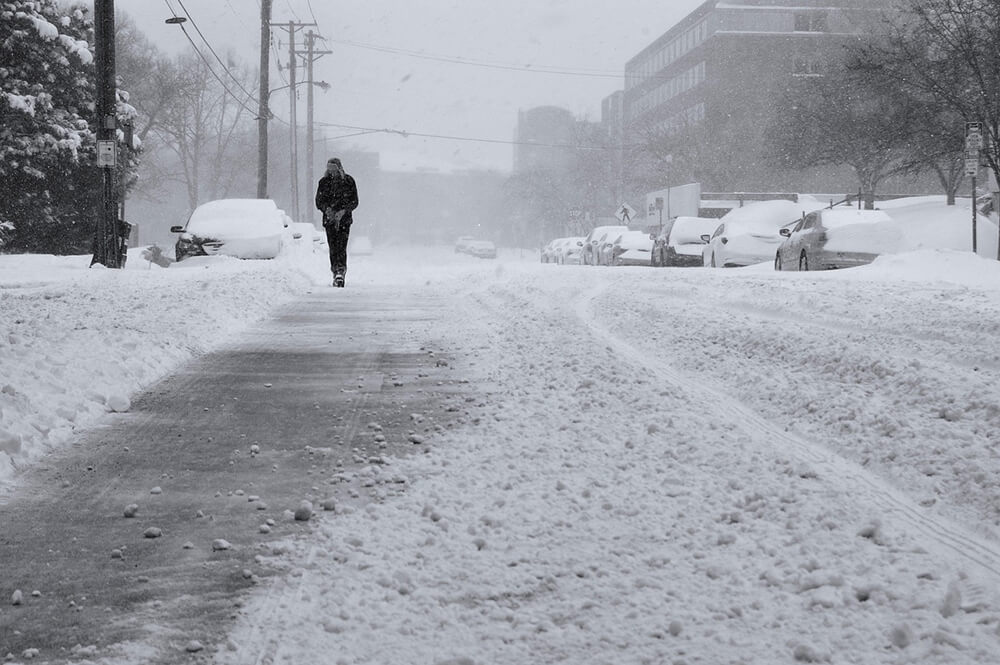Being alert and vigilant while driving is one of the most important practices to keep you safe behind the wheel. When you see something that is dangerous or out of the ordinary, you might want to report it so that other drivers can avoid the danger and stay safe as well. In Minneapolis, there are a couple ways you can report dangerous roads.
If you’ve been in an accident that wasn’t your fault or was caused by dangerous conditions on the roads, then you could use the help of an attorney. At Madia Law LLC, we are here to represent you after your car accident so that you can get compensation for the injuries and other damages you suffered at the hand of another party.
So that you can be fully informed on how to protect your community, let’s take a look at how you can report dangerous road conditions in Minneapolis.
Reporting Dangerous Roads
Most times when you get behind the wheel, you expect roads to be clear and safe since they’re maintained by the city. However, that might not always be the case. When streets and highways aren’t well-maintained or contain dangerous objects, it can lead to collisions between anyone on the road. But the city needs to know when roads aren’t being kept up so they can fix them and keep them safe.
One way to keep the roads as safe as possible is to report when they are dangerous. Here are the different issues that could be considered dangerous road conditions:
- Potholes
- Snow or ice
- Debris
- Animal crossings or accidents with animals
- Fallen tree
- Traffic accident
- Car parked on the roadside in distress
- Abandoned vehicle
If the danger is a pothole or other roadside issue, like debris or an animal, on a highway or interstate, then MnDOT is responsible for fixing that problem. You’ll need the exact location and a specific description of what is wrong on the road. However, if it’s not a state highway or interstate, then MnDOT is not who you contact.
If you spot dangerous conditions on a city street, you will need to report those to the city. First, you’ll need to determine what the specific issue is. The issue could be something like a pothole, animal, debris, or snow. Then complete the corresponding report so that the city can take care of it. If it’s a county road, though, you’ll need to report it to the county.
If you’re not sure what kind of road you’re on, you can consult the road signs that you see on the side of the road. They’ll help you determine whether you’re on state, county, or city-owned roads, which lets you know who is responsible and who needs to be alerted of the issue.
For a legal consultation, call 612-349-2729
Reporting Dangerous Drivers
Even if the road conditions aren’t dangerous, sometimes other drivers can make you feel unsafe and need to be reported. Reporting other drivers might feel strange, but when they are making unsafe decisions and putting theirs and other lives in danger, they should have to face consequences for their actions.
Similarly to reporting dangerous road conditions, who you report dangerous drivers to depends on the type of road you’re on. If you’re on an interstate or state highway, then you should report the dangerous driver to the Minnesota State Patrol.
If it’s a county or city road, then you’ll need to report the driver to local law enforcement. You’ll need to consult the district map that lists local agencies of where you should specifically report the complaint.
Madia Law, LLC Can Help You
Dangerous road conditions can often lead to accidents when drivers aren’t aware or driving carefully enough. If you’ve been in an accident that was the result of someone else’s negligence, then you could use the help of a car accident lawyer from our firm. We’ll help you recover the compensation that you deserve for your injuries while holding the liable party responsible for their actions or inaction.
We want the best for the people of Minneapolis. That’s why at Madia Law LLC we’re committed to standing up for our clients when they’ve been wronged. Reach out to our office today so that we can discuss your potential claim and get started. We can help you begin to move forward.
Call 612-349-2729 or complete a Case Evaluation form


